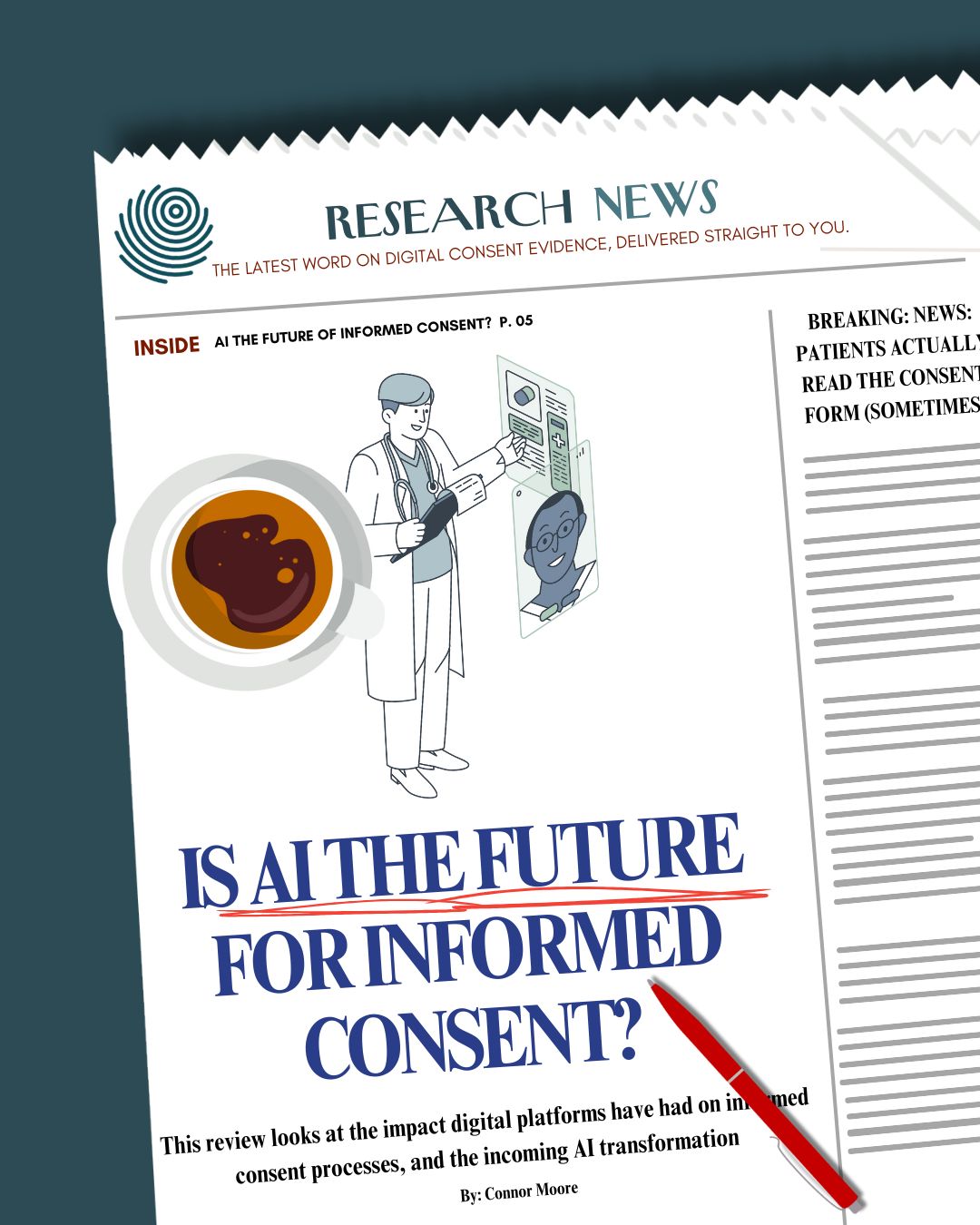
Published in Clinical Surgical Oncology, ‘Enhancing informed consent in oncological surgery through digital platforms and artificial intelligence’ explores how digital platforms and artificial intelligence (AI) can enhance the informed consent process for patients undergoing oncological surgery.
The author, Mr Alex Boddy (Consultant Oesophagogastric Surgeon and Associate Chief Medical Information Officer, University Hospitals of Leicester NHS Trust) focusses on how digital tools can address current challenges whilst emphasising that technology should enhance rather than replace the conversation between doctor, patient and family. The following themes are explored in the paper:
The traditional consent process challenges
The traditional consent process—based on face-to-face consultations, paper information leaflets, and handwritten consent forms—faces several limitations:
- Cancer patients often struggle to absorb complex information following a diagnosis
- Multiple investigations and staging may be required before treatment options become clear
- Treatment carries significant risks with sometimes low chances of long-term cure
- Time pressure to make decisions adds complexity to an already challenging process
- Paper-based consent forms are frequently completed poorly, with illegible writing and omitted risks
The digital consent pathway advantage
The review highlights multiple advantages of digital consent pathways:
- Remote consultations enable patients to avoid unnecessary travel to distant specialist centres
- Digital patient information can be personalised, more accessible, and include multimedia elements
- Documentation standardisation reduces errors and ensures consistent information delivery
- Improved shared decision-making with 72% of digital consent patients reporting “gold standard” shared decision making (compared to only 28% with paper-based consent)
- Cost savings of approximately £0.90 per consent episode, with potential for significant litigation cost reduction
Implementation challenges
Despite these advantages, healthcare providers face several challenges when implementing digital consent solutions, including staff training requirements, integration with existing systems, and ensuring equitable access for all patient groups.
The future: AI-enhanced consent processes
The article explores how AI technologies could further augment the consent process:
- Ambient digital scribes can capture and document patient-clinician conversations
- Large Language Models (LLMs) can generate more readable, accurate, and complete information than surgeon-generated content for many procedures
- Machine translation can make information accessible in multiple languages
- Personalised risk assessments can provide patient-specific information rather than general population statistics
Maintaining the human connection
Whilst embracing technological advances, the review emphasises that digital consent and AI should augment rather than replace the clinician-patient relationship:
- Digital solutions must address equitable access concerns for patients uncomfortable with technology
- AI-generated information should undergo clinician verification, particularly for complex oncological procedures
- The focus must remain on facilitating meaningful conversations rather than treating consent as an administrative process
This balanced approach can leverage technology’s advantages whilst preserving the irreplaceable human connection that lies at the heart of shared decision-making.